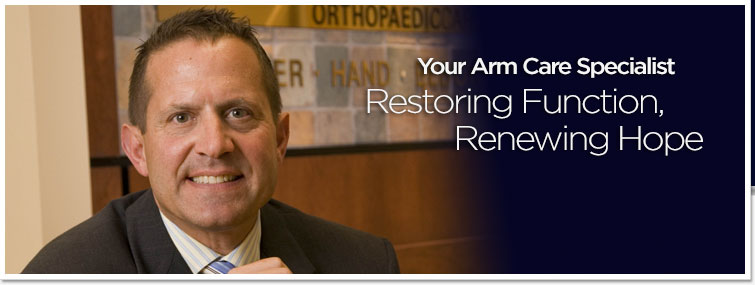Our Practice has MOVED
Our new location is:
Suite 405
1815 South Clinton Ave
Rochester, NY, 14618.
The NEW phone number is 585-565-3500

585.565.3500
Fax Number:
585.434.4081

It's Your Arm. You are Entitled to Know.
When she returned to see her doctor she had a number of questions, and was understandably preoccupied with her injury because she works with her hands, and her ability to make a living revolves around regaining optimal function. When she asked to see her x-rays, however, her doctor declined--reiterating his plan to treat her nonoperatively. This patient's dissatisfaction prompted her toget a second opinion. In fact, her x-rays revealed a completely displaced and comminuted clavicle fracture, and I shared with her the pros and cons of surgically fixing it. She was pleased to see the x-ray (which she was entitled to see from the outset), and actively participated in her treatment plan--electing operative intervention.
This encounter reminded me of two conversations I have had recently with colleagues.
One mentioned to me that he does not think that patients should beable to watch surgical videos on YouTube or individual websites. When I asked why, he did not have a cogent answer, except to insinuate that he thought such videos for public consumption amounted to shameless self-promotion. I got the impression that he felt that seeing the surgical video,in his mind, was for "doctors only."
The other chuckled about a patient who sent him an email with a few questions after having seen him in the office. He seemed incredulous that a patient would actually have the expectation that their doctor would answer an email.
I find these 3 examples disturbing---and emblematic,I fear,of what is to come as "Health Care" becomes increasingly scaled up and institutionalized. As a patient myself, I don't think it's expecting too much to have access to information about my condition--including evidence-based articles, surgical videos, and x-rays. It does not mean that I don't trust my doctor. Simply put, we are entitled to have this access! Transparency should mean that we can use all and every bit of information tohelp us participate in our care.
What do you think?
Replies
I totally agree Dr. Tomaino. Why not see videos and have access to information about medical conditions? I am constantly reading and researching information about shoulder replacements now, and even before I had my reverse shoulder replacements. If anything it put me at ease and kept me informed of exactly what my condition was and the surgery to correct it. Now that my shoulder replacements are both completed, I still continue to read and research. Things are constantly changing and its great to keep yourself up-to-date!!! Your rearm yourself website is just the best! What better access than to turn to this for information about any condition facing a patient? With basil- joint arthroplasty in the near future I am now keeping myself well informed on this condition also. Great way , especially your website to have questions answered and to see videos of the procedure also. X-rays are amzing also. I could look at my shoulder x rays forever- fascinating and yes, definitely a great way to actively participate in our care at Tomaino Orthopedics!!!



